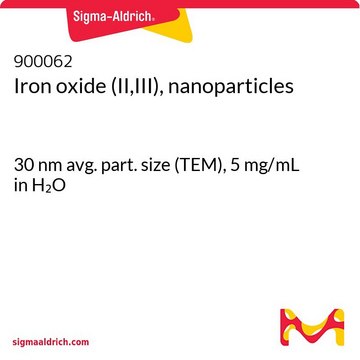742066
Gold nanoparticles
200 nm diameter, stabilized suspension in citrate buffer
Synonym(s):
Au NP, Gold Colloid
About This Item
Recommended Products
form
nanoparticles
suspension
contains
Proprietary Surfactant as stabilizer
concentration
~1.9E+9 particles/mL
diameter
200 nm
PDI
<0.2
storage temp.
2-8°C
SMILES string
[Au]
InChI
1S/Au
InChI key
PCHJSUWPFVWCPO-UHFFFAOYSA-N
Looking for similar products? Visit Product Comparison Guide
Application
This material is highly monodisperse (<12% variability in size and shape), and provides significantly improved surface reactivity. Applications include Surface Enhanced Raman Lables, Sensing/Detection, Biological Targeting, Plasmonics and Electronics.
Legal Information
Storage Class Code
12 - Non Combustible Liquids
WGK
nwg
Flash Point(F)
Not applicable
Flash Point(C)
Not applicable
Choose from one of the most recent versions:
Already Own This Product?
Find documentation for the products that you have recently purchased in the Document Library.
Customers Also Viewed
Articles
Gold (Au) nanoparticles have tunable optical and electronic properties and are used in a number of applications including photovoltaics, sensors, drug delivery & catalysis.
Gold (Au) nanoparticles have tunable optical and electronic properties and are used in a number of applications including photovoltaics, sensors, drug delivery & catalysis.
Silver nanomaterials have unique physical, chemical, and optical properties that are currently being leveraged for a wide variety of biological applications.
Inorganic nanomaterials are tunable by size, shape, structure, and/or composition. Advances in the synthesis of well-defined nanomaterials have enabled control over their unique optical, electronic, and chemical properties stimulating tremendous interest across a wide range of disciplines. This article illuminates some of the recent research advances of inorganic nanoparticles (NPs) in optoelectronics applications.
Our team of scientists has experience in all areas of research including Life Science, Material Science, Chemical Synthesis, Chromatography, Analytical and many others.
Contact Technical Service
